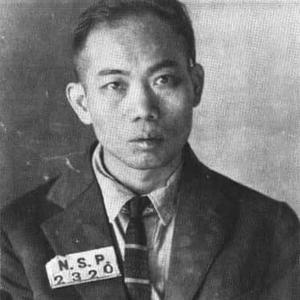
Courtesy of Jonah Horwitz, Attorney for Mr. Creech.
Thomas Creech’s February 28 execution was halted after the Idaho Department of Correction execution team was unable to set an intravenous line after an hour of repeated attempts. Mr. Creech remained strapped to the gurney and conscious while unsuccessful attempts were made to access veins in both arms and legs. Officials did not disclose why the execution team was unable to establish an IV line, but the training and qualifications of staff, as well as the accessibility and quality of Mr. Creech’s veins, could have been factors. Mr. Creech’s attorneys previously stated that he suffers from Type 2 diabetes, hypertension, and edema, which could impact circulation and vein quality. An attempt to set a second execution date for Mr. Creech would raise concerns like those raised by Kenneth Smith before he was executed in Alabama in January. Mr. Smith also survived an initial execution attempt and argued that subjecting him to a second attempt would be unconstitutional. While the United States Supreme Court did not agree to rule on his claim, international experts and human rights bodies expressed concern and alarm at the second execution attempt, characterizing it as torture. Another Idaho death-sentenced prisoner, Gerald Pizzuto, received a stay of execution in August 2023 while the court considered his claim that the state violates his Constitutional right against cruel and unusual punishment by repeatedly scheduling execution dates while knowing the state does not have the means to carry it out.
Josh Tewalt, Director of the Idaho Department of Correction, told press at a news conference following the execution attempt that the execution team’s efforts to establish an IV line were “consistent with IDOC policy.” The state’s execution team, which consists entirely of volunteers, is required by protocol to have at least three years of medical experience. The identities, skills, and specific qualifications of the individuals on the medical team are protected from disclosure by a March 2022 secrecy law, which also conceals from the public and the courts information on the producers and suppliers of drugs used in Idaho executions. It is unknown whether the secrecy law will prevent any public report describing what went wrong in Mr. Creech’s executions.
Mr. Creech’s death warrant required his execution be carried out by 11:59pm on February 28, 2024. After the failure to execute Mr. Creech in the morning, his attorneys filed a new request for a stay in federal court, saying that Idaho’s “badly botched execution attempt” proves the state’s “inability to carry out a humane and constitutional execution.” In a statement following the botched execution attempt, The Federal Defender Services of Idaho (FDSI) said that they “are angered but not surprised that the State of Idaho botched” Mr. Creech’s execution. “This is what happens when unknown individuals with unknown training are assigned to carry out an execution…This is precisely the kind of mishap we warned the State and the Courts could happen when attempting to execute one of the country’s oldest death-row inmates in circumstances completely shielded in secrecy despite a well-known history of getting drugs from shady sources,” FDSI added.
Mr. Tewalt told the press that the Idaho Department of Corrections does not “have an idea of time frame or next steps at this point.” Mr. Creech’s previously filed petitions with the United States Supreme Court were denied. “Mr. Creech has identified a substantial need for guidance from the Court on an issue of great national importance and he has brought a strong vehicle for it to do,” Mr. Creech’s attorneys wrote in the most recent petition.
In the last decade, an increasing number of pharmaceutical companies have restricted the sales of their drugs to prisons, making it difficult for some states to access adequate drugs for lethal injection. Prior to Idaho’s last execution in 2012, Mr. Tewalt, not yet the Director of IDOC, and a colleague flew to neighboring Washington state with more than $10,000 to buy drugs for use in an execution from a pharmacist. This trip only became public knowledge after University of Idaho professor Aliza Cover successfully won a lawsuit seeking the information under the state’s public records act. In March 2023, Gov. Brad Little also signed legislation authorizing the firing squad as a method of execution. This law gives the Director of IDOC up to five days after a death warrant is issued to determine if lethal injection is available. As of February 2024, the state has made little progress in developing a facility suitable for the firing squad, precluding the state from using this method of execution in the near future.
Sources
Rebecca Boone, Things to know about Idaho’s botched execution of serial killer Thomas Eugene Creech, Associated Press, February 28, 2024; Bill Hutchinson, Death chamber glitch halts execution of serial killer Thomas Creech, ABC News, February 28, 2024.
Statement from the Federal Defender Services of Idaho can be found, here.
Lethal Injection
May 06, 2024

Secret Execution Drug Supplier Confirmed, While Federal Death Penalty Reviews Continue at Department of Justice
Lethal Injection
Apr 23, 2024

Articles of Interest: Reprieve Issues New Report on Botched Executions and Racial Disparities
Methods of Execution
Feb 08, 2024


